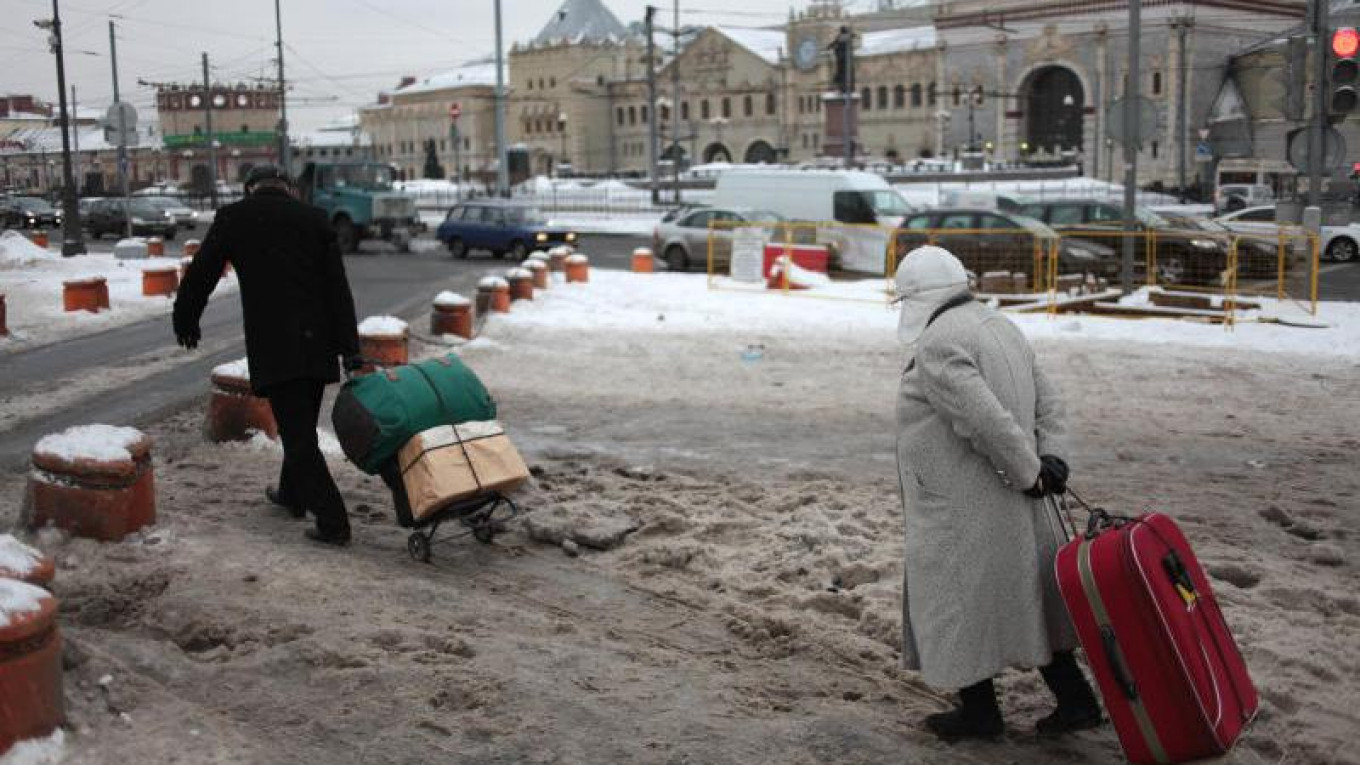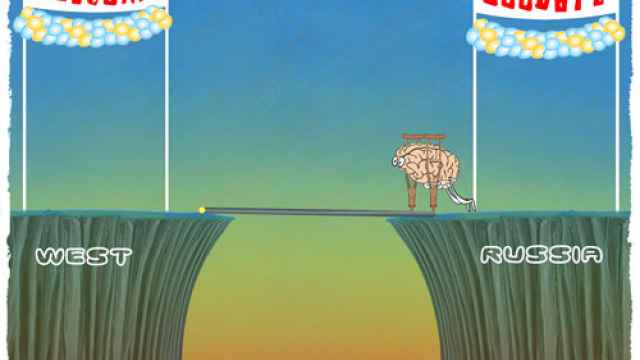The real number of Russians emigrating abroad is between three and four times higher than official data, according to a report published by Russia’s Committee of Civil Initiatives.
The report, published Thursday, points to significant discrepancies in official Russian statistics compared tp those of the countries that Russians emigrate to.
Official U.S. data for 2014, for example, registered 4.7 times as many Russians immigrating to the country than Russia’s state statistics agency Rosstat, with the same tendency apparent with Germany (5 times higher), Spain (19 times higher) and the Czech Republic (20 times higher).
The report, while suggesting it is impossible to know the true numbers of Russian emigres, claims the discrepancies stem from Russia’s Federal Migration Service only considering Russians emigres once they have cancelled their registration at their Russian residences.
Rosstat data is also being distorted by the fact that foreigners registered as residing in Russia for over nine months are considered to have emigrated from Russia when they leave, the report says, claiming that 80 percent of those migrating from Russia in 2014 were in fact foreigners returning home.
The report also sheds light on Russia’s brain drain, with both Russian and foreign data indicating the high level of human capital leaving the country.
93,000 Russians with degrees emigrated Between 2002 and 2011, around 640 with masters degrees and over 250 PhD graduates, the report claims.
The report shows how just 14 percent of migrants to Russia in 2014 were university graduates, compared with 42 and 38 percent of Russian migrants to Canada and the U.S. respectively.
The report also demonstrates that Russia’s emigres leave the regions with the highest living standards such as St. Petersburg and the Moscow region as well as the country’s border regions.
Writing on the report’s findings for the independent Dozhd TV channel, Sonia Grossman wrote that emigration continues to “wash away” Russia’s educated, proactive and motivated.
Russia’s upwardly mobile, ambitious youth, “see no opportunities to change their situation for the better,” she said.
A Message from The Moscow Times:
Dear readers,
We are facing unprecedented challenges. Russia's Prosecutor General's Office has designated The Moscow Times as an "undesirable" organization, criminalizing our work and putting our staff at risk of prosecution. This follows our earlier unjust labeling as a "foreign agent."
These actions are direct attempts to silence independent journalism in Russia. The authorities claim our work "discredits the decisions of the Russian leadership." We see things differently: we strive to provide accurate, unbiased reporting on Russia.
We, the journalists of The Moscow Times, refuse to be silenced. But to continue our work, we need your help.
Your support, no matter how small, makes a world of difference. If you can, please support us monthly starting from just $2. It's quick to set up, and every contribution makes a significant impact.
By supporting The Moscow Times, you're defending open, independent journalism in the face of repression. Thank you for standing with us.
Remind me later.






